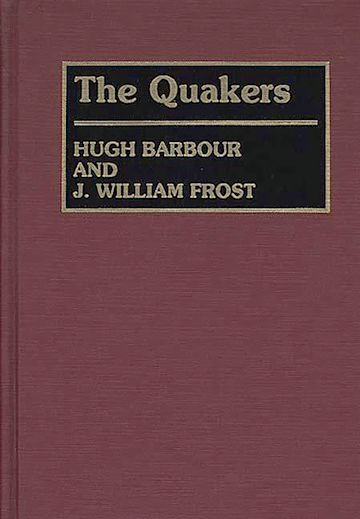This product is usually dispatched within 1 week
Free US delivery on orders $35 or over
You must sign in to add this item to your wishlist. Please sign in or create an account
From two professors of religion, a comprehensive history of the Society of Friends in the U.S. . . . The authors are careful to explain what Quakers believed at every stage of their development and how they organized their lives around the religious and social movements they fostered or fought against. The second part of this engaging book is a biographical dictionary of Quaker leaders. Reference Books Bulletin
This volume interweaves theology, social history, and biography in the first comprehensive history of Quakers in America to be published in more than forty years. Barbour and Frost treat all branches of American Quakers, tracing the history of the denomination from 1650 to the present and demonstrating how changes in the movement can be related to the traditions of the Society of Friends and developments in the wider cultural context. The text presents the lives and ideas of prominent Quaker men and women: George Fox, William Penn, John Woolman, Elias Hicks, Joseph John Gurtney, Rufus Jones, Henry Cadbury, and many others. The authors show that today although a Quaker can be fundamentalist, an evangelical, a moderate, or a liberal, the twentieth century has been marked by attempts to reunify and affirm a common tradition among all branches of the denomination.
After initial chapters dealing with the genesis of Quakerism under George Fox in Puritan England, the authors turn to an examination of the Society of Friends in colonial America. They reveal the Friends' creative response to persecution after 1660, the intellectual achievements of William Penn and Robert Barclay, and the creation of early colonies in New Jersey and Pennsylvania. Later chapters address the influence of Quaker pacifism and opposition to slavery, the establishment of Quaker communities in midwestern and western states, and the theological divisions within the Society of Friends that characterized the movement in the nineteenth century.
| Published | Nov 15 1988 |
|---|---|
| Format | Hardback |
| Edition | 1st |
| Extent | 421 |
| ISBN | 9780313228162 |
| Imprint | Greenwood |
| Dimensions | 9 x 6 inches |
| Series | Denominations in America |
| Publisher | Bloomsbury Publishing |
Free US delivery on orders $35 or over
Your School account is not valid for the United States site. You have been logged out of your account.
You are on the United States site. Would you like to go to the United States site?
Error message.

